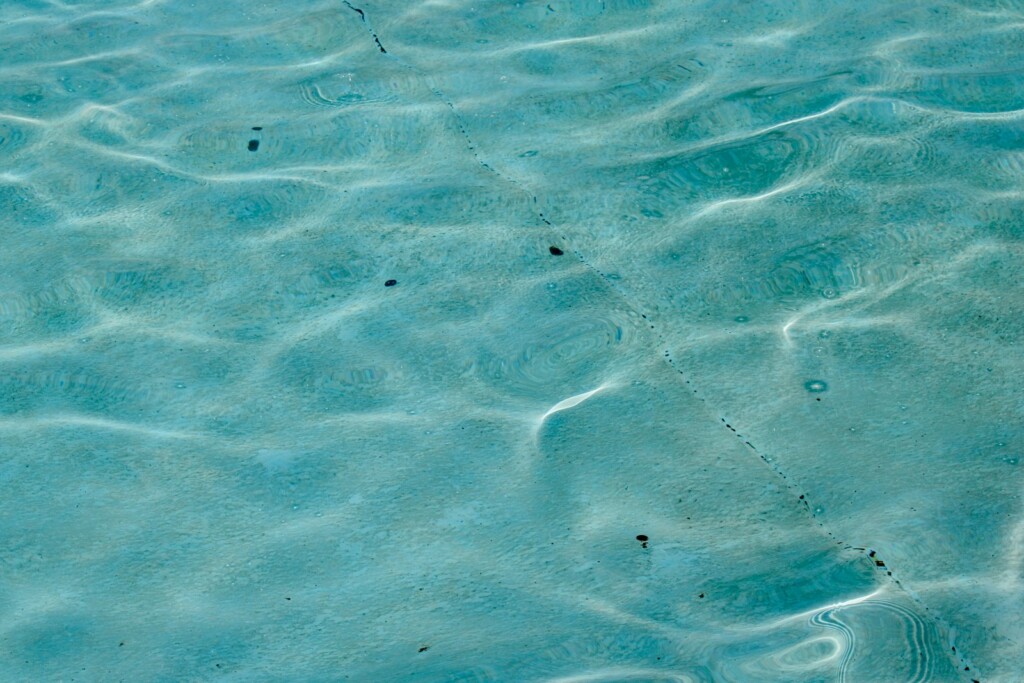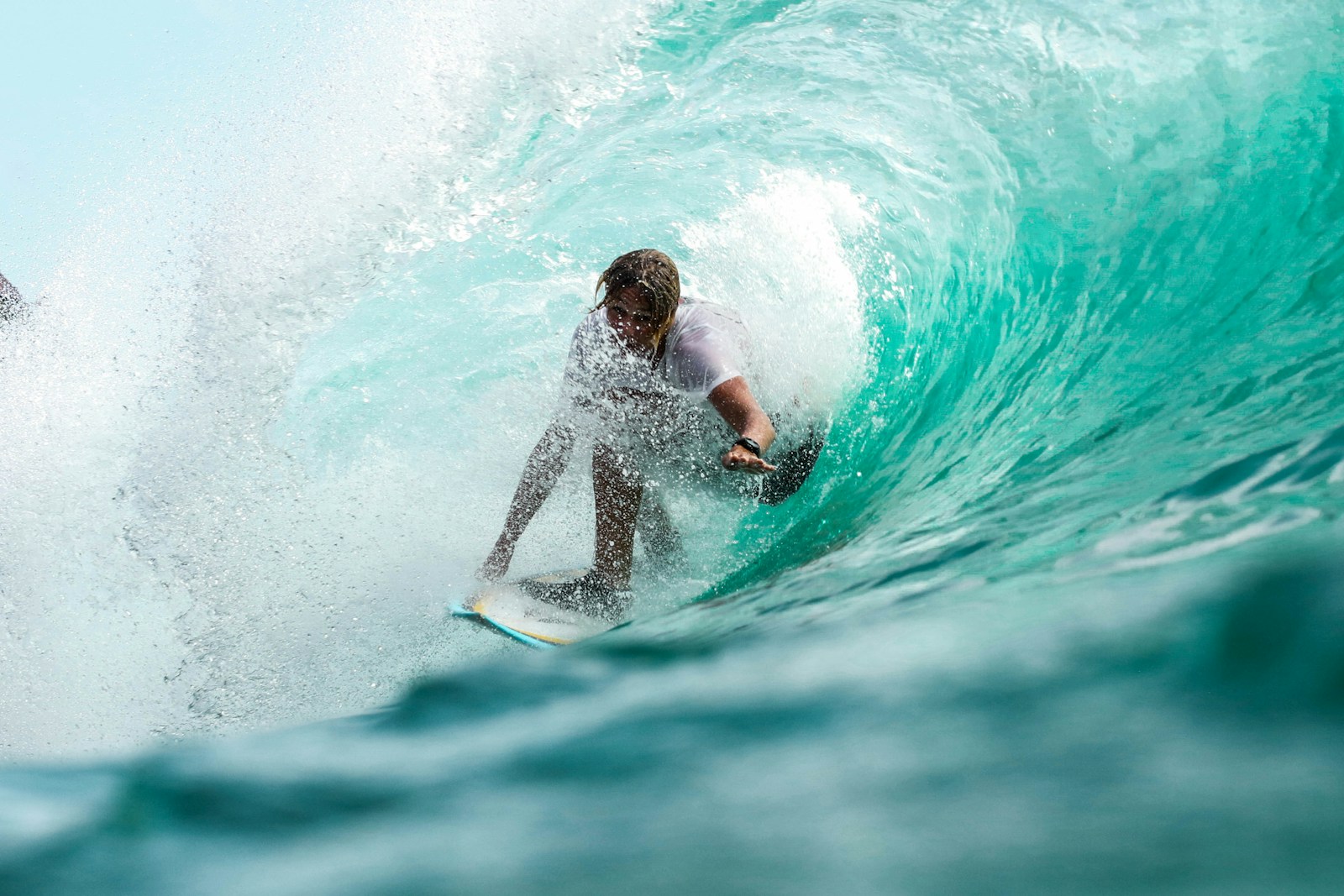Have you noticed the strange way surfing shifts your mood? You can walk down to the beach heavy with thoughts, tight in the chest, maybe even carrying that invisible weight behind your eyes. Then you paddle out. Salt water touches your skin. You wait for a set. A wave comes. You ride.
And just like that: something lifts.
It is not just exercise. Not just fresh air. It is not even only about adrenaline. There is something else going on. Something deeper. Surfers know it. Ocean lovers feel it. Science has hints. Spirit has stories.
The core idea is simple. Your body is mostly water. The ocean is water in constant movement. When you enter, your inner water meets the outer water. The rhythms of the sea stir the rhythms inside you. Your body responds. Your mind follows. Emotions open.
That is what we are exploring here. Not just “surfing is good for your health” but surfing as a way to feel more. Surfing as a way to let the ocean heal emotions you might not even know are stuck inside you.
Table of Contents
Why Is the Ocean So Healing?
Start with stress. Everyone knows stress lives in the body. Shoulders tighten. Heart races. Breath shortens. The ocean interrupts this pattern in a very direct way.
When you paddle out, your breath adjusts to the rhythm of waves. Cold water hits the skin and stimulates the vagus nerve, which helps calm your nervous system. Salt air carries negative ions. Scientists argue about the exact mechanism, but research shows those ions may improve oxygen absorption and serotonin levels. Either way, many people feel lighter after time near the sea.
Surfing makes this effect stronger. The paddle itself is repetitive, almost like a moving meditation. The waves demand presence. You cannot check your phone in the lineup. You cannot scroll away your worry. You must watch the horizon. You must respond in the moment.
Think about that. How many places in life force you into the now so fully?
This is why surfers often talk about “therapy” without using the word. The sea heals by pulling you out of the future and the past and forcing you to live in rhythm with the present.

What Emotion Does the Ocean Represent?
People have always connected water with emotion. It is not just poetry. It is almost instinct. Tears are water. Sweat is water. Blood carries salt like the ocean itself.
So what does the ocean represent?
For some, it represents freedom. Wide horizons. Space to breathe. For others, it represents fear. Depths we cannot see. Waves we cannot control. Both are true. The ocean holds contradictions the same way emotions do. It is joy and grief. Calm and storm. Safety and danger.
Surfing brings you face to face with all of it. You paddle into glassy water and feel peace. You see a heavy set wave coming and feel fear. You drop into a ride and feel a flash of joy that words cannot catch. Surfing amplifies every emotion, sometimes in a single session.
That is the point. You do not hide from feelings out there. You meet them.
How Does the Ocean Affect Your Mood?
Now the science side. When you surf, your body shifts on a hormonal level. Endorphins flood from physical exertion. Dopamine spikes when you catch a wave. Cortisol, the stress hormone, drops after time in the water. Serotonin rises in response to sunlight, fresh air, and that subtle ion effect.
It is like a natural pharmacy. But unlike pills or quick fixes, the effects ripple out. Many surfers describe walking home from a session with a sense of being reborn. Not just happier but cleaner inside.
It makes sense. Emotions are not just “in the head.” They are chemical patterns in the body. Change the chemistry, and mood changes. The ocean changes chemistry through immersion, breath, and rhythm. Surfing magnifies the effect because it demands effort, risk, and reward.
If you feel lighter after a surf, it is not an illusion. It is biology plus experience.
Resonance: When Outer Tides Move Inner Tides
Here is where it gets fascinating. Your body is roughly 70 percent water. Cells communicate in fluid environments. Blood flows like rivers. Cerebrospinal fluid moves like tiny tides around your brain. You are not just carrying water. You are water shaped into a human form.
Now picture stepping into the ocean. The sea moves with tides, waves, and swells created by forces as large as the moon. That moving mass surrounds you. Resonance is the term scientists use when one vibrating system influences another. Think of a guitar string that starts vibrating when another string nearby is plucked.
Could the outer tides stir inner tides? Some scientists say yes, at least indirectly. For example, slow rhythmic movement, like waves, can entrain brainwaves into calmer patterns. Heart rate and breath often sync to natural rhythms. Even if it is not literal wave-to-cell resonance, the metaphor feels true. Surfers feel moved, inside and out, by the same force.
When the sea rises and falls, part of you rises and falls with it.

Can Sea Water Heal You?
There is a reason spas and hospitals once prescribed ocean baths. Seawater contains minerals like magnesium and potassium. Skin absorbs trace amounts. Inhaling sea mist may clear airways. Cold water immersion has been shown to reduce inflammation and improve mood.
But healing is not only physical. There is an emotional “cleanse” that happens too. Think of how you feel after a wipeout. Salt water fills your nose. Your board drags you under. For a moment, you surrender. When you resurface, you gasp, cough, laugh, maybe even curse. And strangely, you feel lighter.
That is healing. Not because salt water fixed your organs but because the sea shook something loose. Fear, pride, control. You let go and came up renewed.
What Does the Ocean Do Spiritually?
Across cultures, water is used for cleansing, blessing, rebirth. Baptism in rivers. Ritual baths in temples. Offerings to the sea in island traditions. Water carries spirit.
For surfers, every session can be a ritual. Duck diving under a wave is an act of surrender. Letting the ocean pass over you. Catching a wave is union. Body, board, and sea aligned for a fleeting moment. Wiping out is sacrifice. Offering ego back to the water.
You do not need religion to feel this. The ocean itself is sacred enough. The spiritual benefit is simple: you remember you are small, yet also part of something endless. That paradox heals.

Is the Sea Good for Your Mental Health?
Yes. Research calls it “blue space” benefit. Studies show people living near the coast report lower stress and better wellbeing. Brain scans reveal calmer patterns when viewing water compared to urban scenes. Exercise in water settings improves mood faster than exercise in gyms.
Surf therapy programs use this directly. Veterans with PTSD. Kids with trauma. People struggling with addiction. Surfing is not just fun, it is treatment. Waves demand focus. The sea does not judge. Progress is felt, not graded.
Mental health improves because the ocean provides what clinics often cannot: a mix of challenge, connection, and nature’s embrace.

Why Does the Ocean Calm People?
Sound matters. The repetitive crash of waves creates a sonic rhythm similar to white noise, which calms the brain. Breathing in sync with waves steadies the nervous system. Movement in water feels slower, heavier, grounding.
Think of sitting between sets. Nothing to do but wait. You hear water, feel board under you, horizon stretching ahead. That stillness is meditation without trying. People pay for mindfulness classes to get what surfers find for free: a nervous system calmed by nature’s design.
Why Do I Sleep Better Near the Ocean?
Simple. The nervous system calms. Cortisol drops. Breath deepens. Muscles relax. Sunlight boosts melatonin cycles. Add the exhaustion of paddling and wave riding, and your body is ready for rest.
But there is also a deeper sense. After time at sea, your mind feels emptied. Worries feel smaller. Dreams come easier. Sleep is not only longer but sweeter.
Surfing as Emotional Practice
So how can you use surfing as more than sport? Treat it as practice.
Before paddling out, set an intention. Maybe you want to release stress. Maybe you want to face fear. Maybe you want to feel joy again. Hold that thought lightly.
During your session, notice your emotions. Fear when you see a big set. Excitement when you paddle into a wave. Frustration when you miss one. Instead of resisting feelings, let them move. That is what the ocean is teaching.
After surfing, take time to reflect. Some surfers journal. Others just sit with a coffee and replay the session. Ask: what did the ocean show me today?
This turns surfing into therapy without making it heavy. It stays fun. But it also becomes a way to feel deeper.

You Are Water Meeting Water
Here is the truth. The ocean heals emotions not because it gives you something you lack but because it stirs what you already carry. You are made of water. The sea reminds you.
When your inner water feels stuck, the ocean moves it. When your mind feels crowded, waves clear it. When your heart feels closed, salt water opens it.
Surfing makes this even more powerful because it blends body, mind, and spirit in a single act. You paddle. You risk. You surrender. You rise. Each wave is a lesson. Each session is a cleanse.
You are not separate from the sea. You are water meeting water. That is why the ocean affects your emotions and your mood.
Questions? We Got You!
Does surfing help with anxiety?
Yes. Cold water, exercise, and focus calm anxiety patterns. Many surf therapy programs use it for this reason.
Can surfing be considered therapy?
Absolutely. It combines physical release with emotional processing. While not a replacement for clinical care, it supports healing in unique ways.
Why do I feel emotional after surfing?
Because the ocean shakes feelings loose. Adrenaline, relief, awe. Surfing opens channels you may keep closed on land.
Is ocean water healing for body and mind?
Yes. Minerals help the body. Rhythms help the mind. Together, they create balance.

